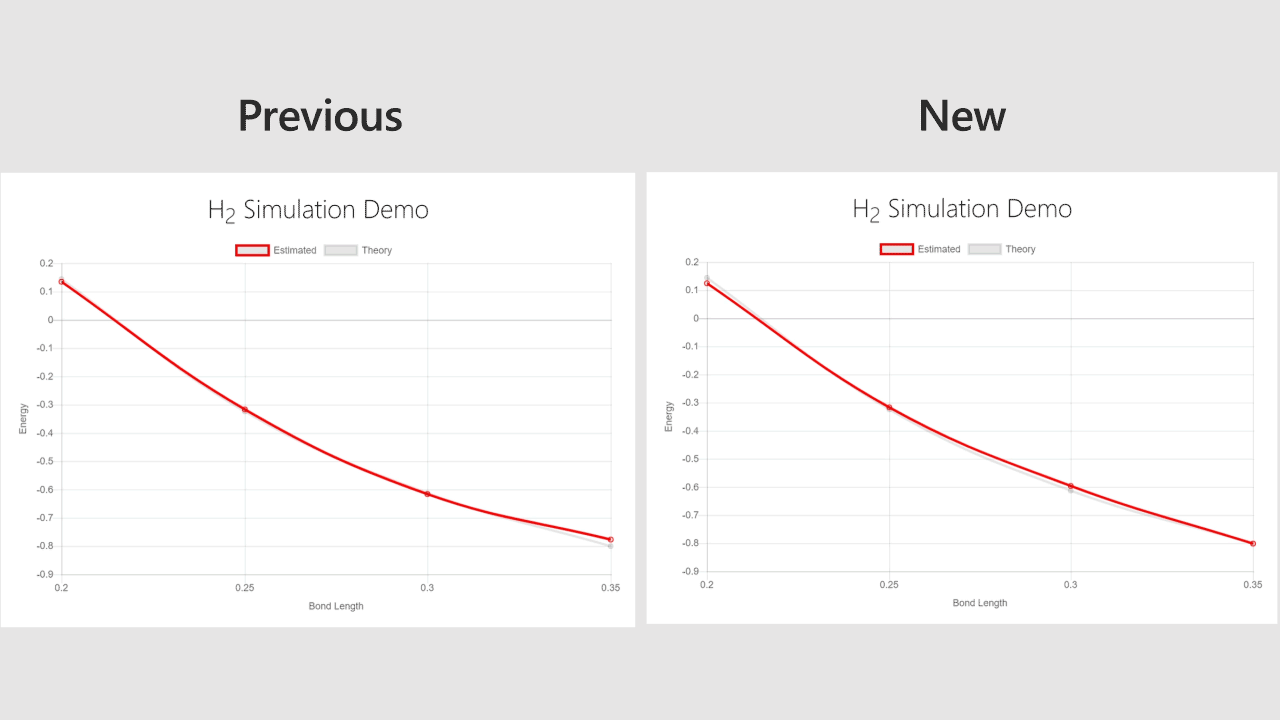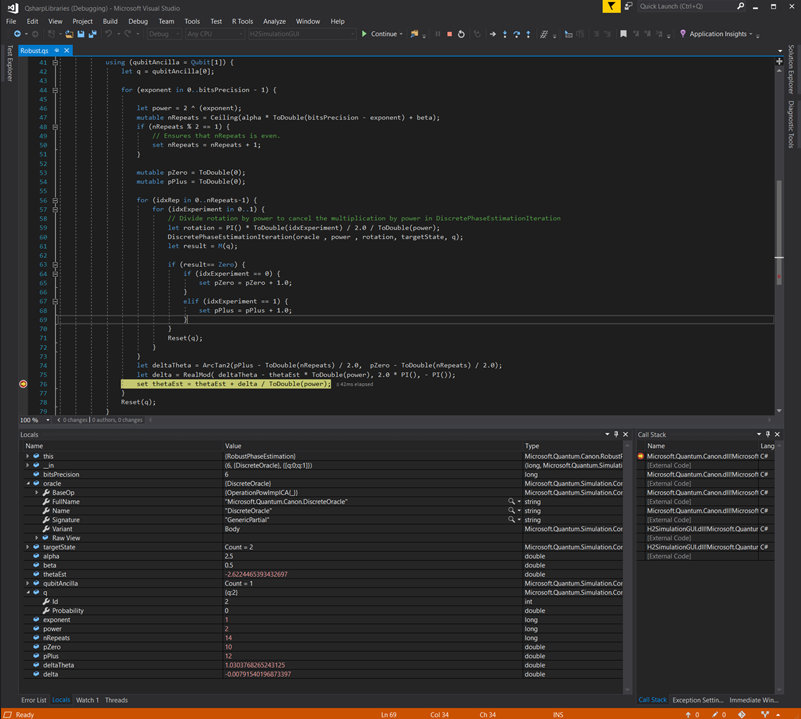Today, Microsoft released an update to the Microsoft Quantum Development Kit including an enhanced debugging experience and faster simulations, as well as several contributions from the Q# community. We’re excited about the momentum generated by the many new Q# developers joining us in building a new generation of quantum computing.
Just over six months ago, we released a preview of Q#, our new programming language for quantum development featuring rich integration with Visual Studio. The February 26 release added integration with Visual Studio Code to support Q# development on macOS and Linux as well as Python interoperability for Windows. Since then, tens of thousands of developers have begun to explore Q# and the world of quantum development.
Today’s update includes significant performance improvements for simulations, regardless of the number of qubits required, as shown in the H2 simulation below. This is a standard sample included in the Microsoft Quantum Development Kit.

This update includes new debugging functionality within Visual Studio. The probability of measuring a “1” on a qubit is now automatically shown in the Visual Studio debugging window, making it easier to check the accuracy of your code. The release also improves the display of variable properties, enhancing the readability of the quantum state.
Adding to the new debugging improvements, you’ll find two new functions that output probability information related to the target quantum machine at a specified point in time, called DumpMachine and DumpRegister. To learn more, you can review this additional information on debugging quantum programs.
Thanks to your community contributions, the Microsoft Quantum Development Kit now includes new helper functions and operations, plus new samples to improve the onboarding and debugging experience. Check out the release notes for a full list of contributions.
Download the latest Microsoft Quantum Development Kit
We’ve been thrilled with the participation, contributions, and inspiring work of the Q# community. We can’t wait to see what you do next.

